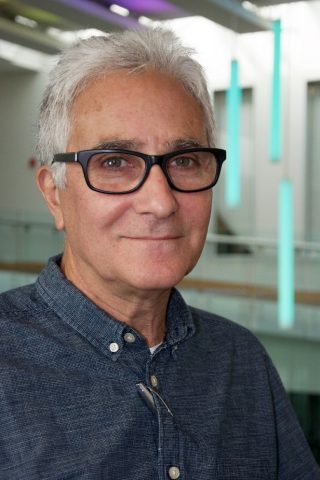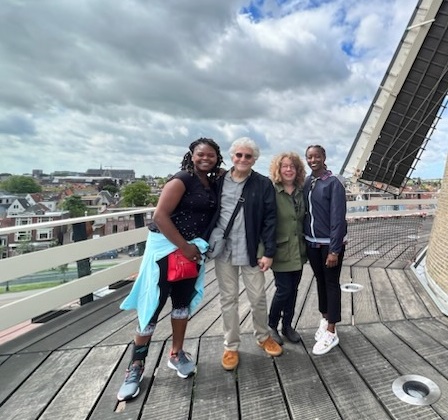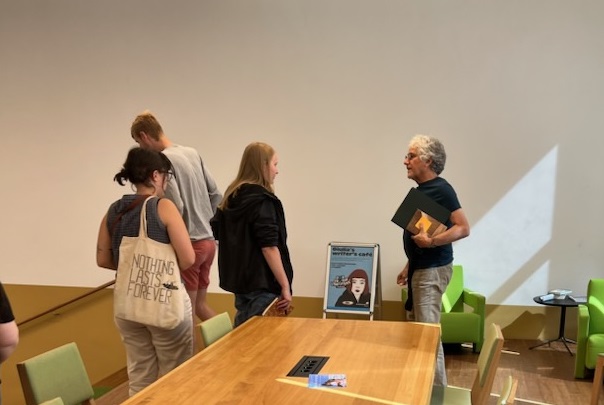Dr. Greg DeBlasio – Northern Kentucky University
“If you do not look at the entire community as a whole
you will find yourself in very limiting experiences.”

If nothing else, this paraphrasing about the teachings of sociologist Amitai Etzioni neatly sums up my discussion with Northern Kentucky University professor, Dr. Greg DeBlasio. During his time at NKU Dr. DeBlasio has held many titles including Program Director for Public Relations and working with curriculum development. Currently he teaches Public Relations classes to undergraduate students. Dr. DeBlasio says that instead of the term Civic Engagement, he prefers the term Community Involvement, with community being not only immediate surroundings, but truly the world at large – a global community. He feels that this phrase is more open and accessible with a wider perspective, while the former suggests government and rigidness. The university and community should be one and the same, with an openness and accessibility that comes with no barriers between the two. In addition, Dr. DeBlasio encourages us to look at community involvement as a living, functional thing, and not just the formal events, days, or pre-planned experiences. Embrace service as an organic entity without the need for formal organization.

When one has an expertise it’s important to share that with the greater community for the betterment of all. Dr. DeBlasio shares his expertise in many ways, one of which is through the class clients he integrates into the courses he teaches. Clients have included a no barrier homeless shelter, a veteran and SSI disability attorney, a yoga instructor that specializes in veterans and trauma survivors, and an entrepreneur/entertainer/restaurateur. Dr. DeBlasio does not believe that community involvement needs to be limited to those with a non-profit status. As long as the person or organization is ethical and sincere, they are a part of the community and are deserving of assistance. This feels particularly true when we move out of physical service and look at knowledge-based service.
As a professor Dr. DeBlasio feels that it is vital to foster a comfort level in students that enables them to go into the world, speak to people, form connections, and help to solve problems where they manifest. He also encourages students to connect with each other as opposed to the isolation that can sometimes occur with college students. He feels it is especially important to remember that community is always broader than town limits and can spread beyond geographical borders. Communities can be formed around shared experiences, hobbies, and interests. Online communities are just as valid as in person and often have the ability to truly open up to the global community. These communities can form bonds and provide further connections for others, as well as serve as a platform for providing your area of expertise.
There can sometimes be barriers to community involvement, such as time constraints, transportation, technical capabilities, or disability. Dr. DeBlasio works against these barriers largely by inviting class clients to be a part of the courses he teaches. This brings involvement to the students and helps them to feel more comfortable with the process. For his public relations students he encourages developing the skill of evaluating stakeholders to bring understanding to an organization or person. Also, as is true with any knowledge-based assistance, making sure that you are totally open and communicative with your client and maintaining realistic assistance as opposed to saying yes to things that can’t reliably be delivered (i.e., website views).
Dr. DeBlasio closes with the reminder that service does not need to be formal or fancy. The desire to be part of the global community should naturally lend itself to ways to improve the community for all who are a part of it. Evaluation of the service should be less about the actions one undertook and more about the quality of service done. Did we hear the need and work towards solving it to the best of our ability? He feels that a marker of success is the opening of the idea of community to his students. The more we embrace others the larger and more successful our community will be.
